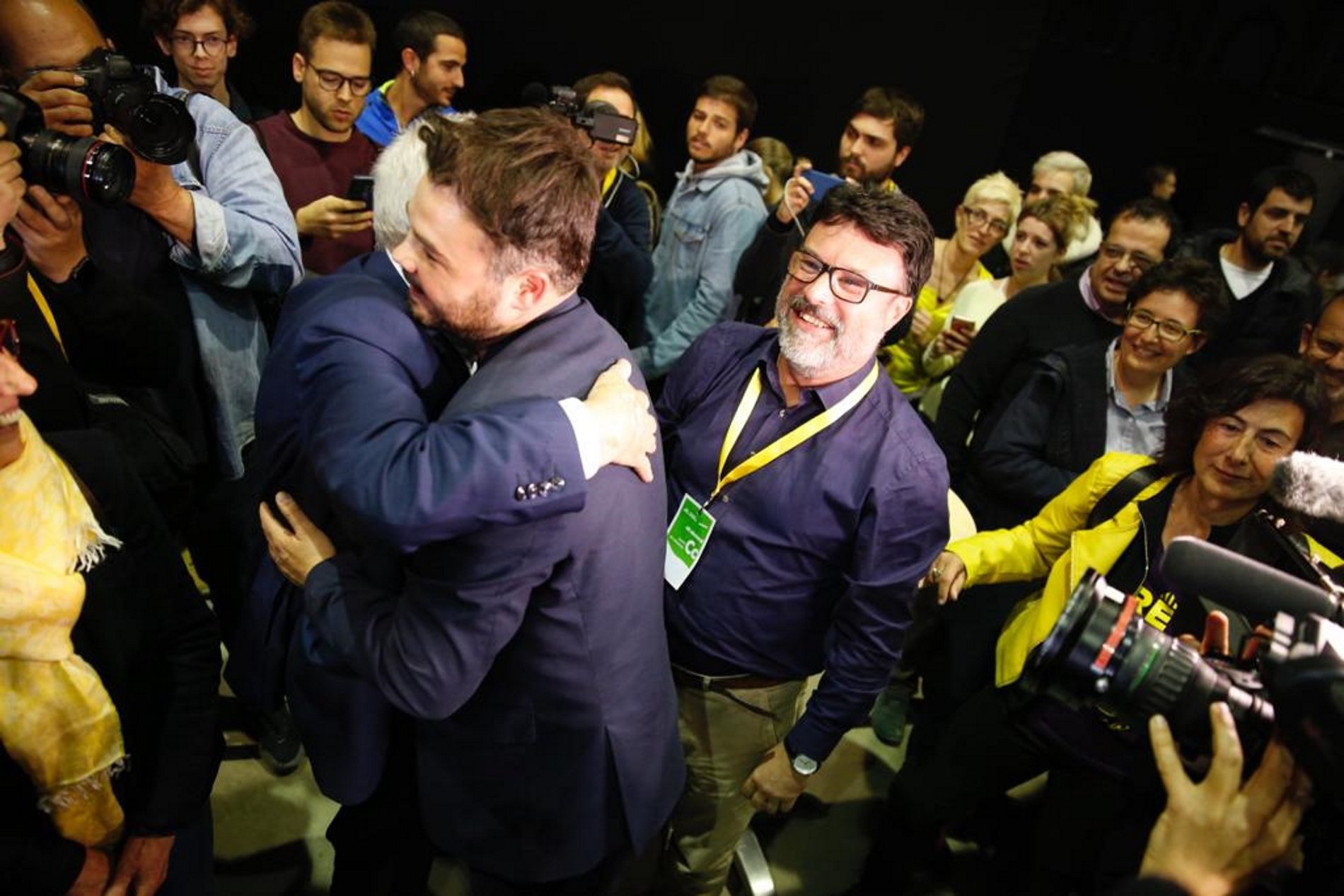The Catalan Republican Left (ERC) has won the Spanish general election in Catalonia for the first time since Spain's Second Republic in the 1930s. The pro-independence party, with its leader and Spanish Congress candidate Oriol Junqueras in jail, has obtained 15 deputies, that is to say, six more than the nine it won in the 2016 election. It won more than a million Catalan votes, in an election in which the voter turnout in Catalonia reached 77.57%, 14 points more than in 2016.
ERC was predicted to win by the campaign surveys, and this time they were correct, as it displaced En Comú Podem, which was the leading Catalan force in the Spanish parliament after the elections of 2015 and 2016 and now falls from 12 to 7 seats. With 99.61% of the votes counted, the party now led by Jaume Asens obtained 612,000 votes and 14.89%, losing almost 10 percentage points.
ERC was the clear winner of its duel with the Catalan Socialists (PSC). The Socialists, nevertheless, made a remarkable comeback: after a journey through the electoral wilderness, they are in second position and have increased their presence from 7 to 12 seats. The candidature headed in Barcelona by Socialist government minister Meritxell Batet received more than 950,000 votes and 23.22%, 7 points more than in 2016. The PSC is once again the leading force in the Barcelona constituency - at the previous election En Comú Podem was first - while ERC ran out the winner in Girona, in Lleida, and for the first time, in Tarragona.
The Republican Left were also victorious in the battle for hegemony within the independence movement. The other main pro-independence force, JxCat (Together for Catalonia), which also had its number one candidate for Barcelona imprisoned - in this case, Jordi Sànchez - will be the fourth largest force with seven deputies, one fewer than those obtained by its predecessor, the centre-right CDC, in the 2016 elections. The group to which both presidents Quim Torra and Carles Puigdemont belong won 495,000 votes and 12.05% of the total, half as many as ERC.
Ciudadanos (Cs), led this time by Inés Arrimadas, have stagnated in Catalonia with 5 deputies, in contrast to the growth in representation that the party has experienced across most of the Spanish State. Nevertheless, the party did increase both its number of votes and percentage figures on 2016, rising from 380,000 to 475,000 ballots and from 10.94% to 12.05% of the total.
Arrimadas can also claim victory in her duel with the Popular Party (PP) candidate Cayetana Álvarez de Toledo, who saved only her own seat while losing the other five formerly held by the Catalan PP, in parallel to the unprecedented debacle of the party led by Pablo Casado in the entire Spanish state. With 199,000 votes and a mere 4.85% of the total in Catalonia, they are close to disappearing. The party lost 264,000 votes and 8.5% in Catalonia.
The far-right VOX party won representation in Catalonia with a single seat for its candidate for Barcelona, Ignacio Garriga.The party won 148,000 votes and 3.60%. It did exist in 2016 - and in Catalonia it won a grand total of 198 votes, 0.01%.
The third pro-independence force in these elections, the Front Republicà grouping formed just weeks ago by Albano-Dante Fachin failed to win a seat. The party won 112,000 votes, or 2.73%.
Overall, the pro-independence presence in Spanish elections in Catalonia has risen from 17 out of 47 seats, to 22 out of the new total of 48 deputies, and a little less than 40% of total votes.

